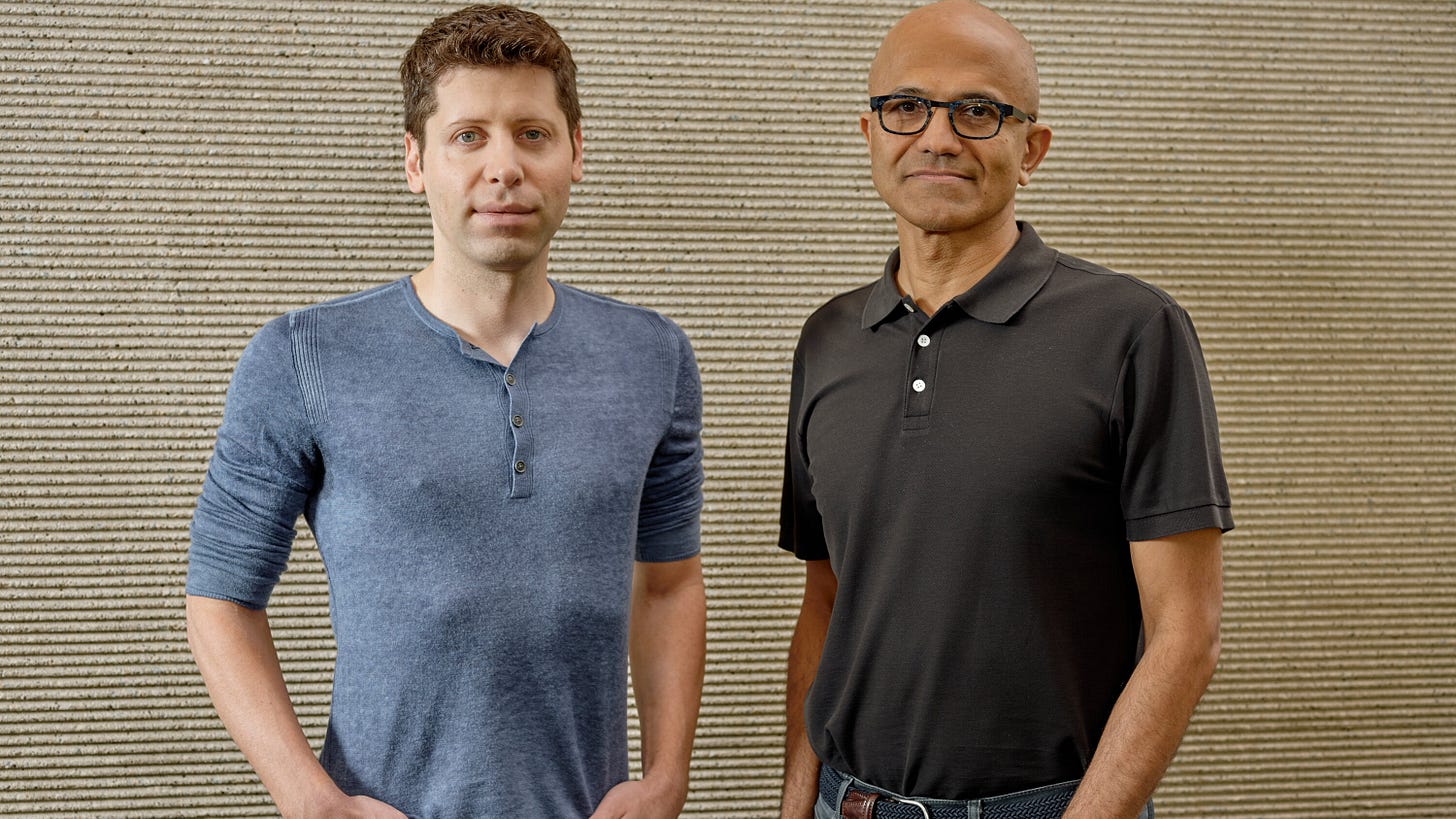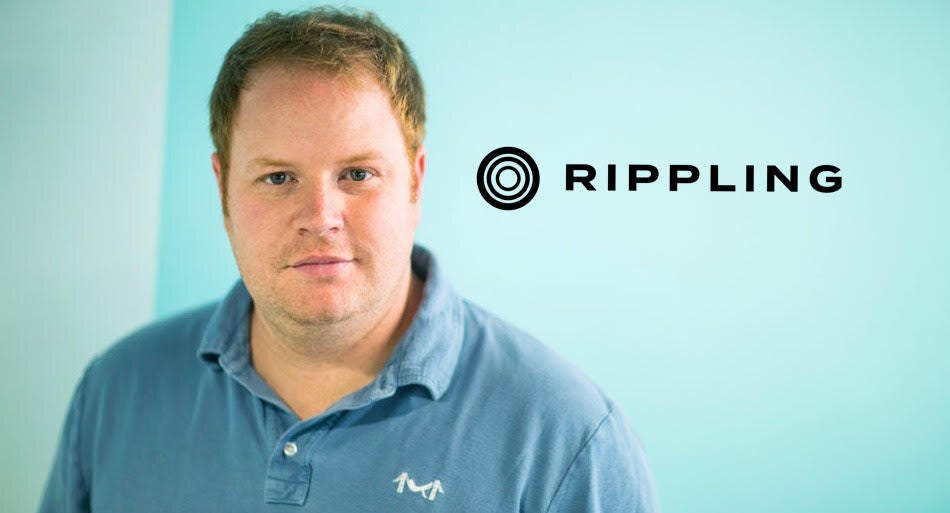Why Relationship-Building is Key to Business Success (and how to do it)
The most successful partnerships are mutually beneficial
Last week marked the 1-year anniversary of my entrepreneurship journey. It has been the most fun and exciting year of my life. It has also been a year of tremendous personal growth.
Through entrepreneurship, I’ve had to learn missing skills, confront my limiting beliefs, and better understand my own strengths and weaknesses. If entrepreneurship is about growing business rapidly, then I had to grow quickly too. The business can’t grow without the founder growing with it.
Business success is a lagging indicator of the founder’s growth themselves.
This growth comes with changing perspectives on all areas of life. And the hardest change that I went through last year was shifting from a product-focused to a relationship-focused view of the world instead.
My previous self would have focused on the technical aspects of a product, like how it was built, or the science and physics behind it. Now when I see businesses, I analyze them based on the partnerships needed to make them happen.
Why Relationships Matter in Business
All successful businesses have successful relationships behind it. Doing anything alone is tough, so success as an entrepreneur depends on founders partnering with others. Even Y-Combinator recognizes this, which is why they prefer startups with multiple founders as opposed to solo-founders.
I realize the error of my early days when I failed to see the importance of partnerships. I used to always try to get things done by myself, and I shunned partnerships because I was scared of being taken advantage of.
Now I see partnerships as a critical driver of growth. Just as countries get richer the more they trade with each other, as entrepreneurs, we must always think of ways to partner with each other to help each other grow.
Partnerships are a form of trade. The more you trade the faster you grow.
We can see the importance of partnerships particularly with how things go viral because virality is a by-product of successful partnerships.
How Things Go Viral
Before I thought virality was like a “chain reaction.” One person sees something they like, they share it with another friend, that friend shares it with another, and so-on until the whole world sees it.
But in a recent article on a newsletter I read, the author Lenny Rachitsky argued that “virality is mostly a myth.” And that viral content spreads not due to a chain-reaction, but when “someone with a large platform shares the product with their audience.”
He quotes Derek Thompson in Hit Makers,
“The gospel of virality has convinced some marketers that the only way that things become popular these days is by buzz and viral spread. But these marketers vastly overestimate the reliable power of word of mouth.
Much of what outsiders call virality is really a function of what one might call ‘dark broadcasters’—people or companies distributing information to many viewers at once, but whose influence isn’t always visible to people outside of the network.”
So virality behaves more like a shot-gun burst due to someone with a large audience broadcasting it, rather than a long chain-reaction. This is similar to how COVID spreads virally, as COVID spreads mostly through “super-spreader” events, the equivalent of a “dark broadcaster” that Thompson talks about.
Therefore, to go viral we have to create our own “super-spreader” events by investing more in partnerships with larger platforms, influencers, and PR.
My Own Experience with Partnerships
Once I read about “dark broadcasters”, I started to notice how important they were in other people’s growth stories. Lenny Rachitsky is actually the best example of this, as his initial growth was spurred by AirBnB’s CEO sharing one of his articles on Medium. He also made two key guest posts on FirstRound Capital’s and Andrew Chen’s blog that further accelerated his growth.
His start is similar to mine, because I also started with a viral article on Medium. But this got magnified so much larger when I re-published it in Business Insider.
The results after partnering with Insider were astounding. Before I published there, I had 4k followers on LinkedIn which took me 4 months to build. But after publishing with Business Insider, I doubled my following on LinkedIn to 8k followers in just 4 days. Business Insider was my “dark broadcaster”, and this partnership continues to drive followers to my page to this day.
So the lesson from all of this is to:
1) invest more in relationships by reaching out to others
2) take every PR opportunity, interview, podcast, and speaking engagement request you can get
3) think more in terms of who to partner with rather than trying to do everything yourself.
Thinking More Critically About My Value-Add
It’s clear that partnerships are important for growth. But an obvious fact I missed early on was that successful partnerships are mutually beneficial. We can’t just focus on what we gain from the partnership, but we must also focus on our value add to the relationship as well.
I made this mistake many times early on, because as a W-2 employee, I never had to justify my value. My compensation was dictated by market rates rather than by my personal value add. And if I built something that didn’t get used by customers, it didn’t matter because I’d still get paid the same amount. It was management’s job to make sure I worked on value-additive projects.
Entrepreneurship has taught me that all of business hinges on value creation. To make a profit, we have to create a lot of value first and then capture a portion of it for ourselves. And as an entrepreneur if I’m not adding value, I definitely won’t get paid. So my business journey has made me conscious of my value add to every meeting, interaction, and person I meet.
It was this thinking that helped me achieve a break-through realization about a mentor-mentee relationship I have.
A Break-Through Realization on Mentor-Mentee Relationships
I was fortunate that the CEO of a successful mobile app agency reached out to me after reading some of my articles online. We first chatted on LinkedIn, then we had a video chat, and a few months later we even met up for lunch.
My previous self would’ve seen this mentor relationship as a one-way street. That it was just about someone with more experience helping someone earlier in their journey.
But from becoming an entrepreneur, I realized that I needed to add value to this mentor as well. Mentor-mentee relationships are partnerships, and the most successful relationships are mutually beneficial.
If I wanted this CEO to be my mentor, I had to make sure that they gained something from coaching me as well, even if they were doing it out of pure generosity (which they were).
So instead of asking, “What can the CEO do for me?” I flipped the question back to myself, and asked, “What can I do for the CEO?”
At one lunch, the CEO told me they were about to go on a podcast for a student group, and they asked me for advice on speaking engagements. I made sure to give them all of my best tips on speaking engagements, including:
The importance of personalization - why I would try to name-drop the organization throughout the talk, and include insider jokes and references that only the organization would recognize to show it was tailored for them
The importance of story-telling - why I would tell as many life-stories as possible, and why failure stories are the best because they would make the CEO seem more relatable
My pet-line when I talk to students, where I always tell them that, “you’re all doing better than I was at your age” because it warms up the crowd and sets a humble tone for the rest of the talk immediately.
And after the CEO finished the podcast, I texted them to ask how it went because I wanted the CEO to know that I care about their success too.
Because of my entrepreneurship work, I was able to establish a much stronger mentor-mentee partnership with this CEO. I understood that both parties had to benefit, and sought to add as much value as I could to the CEO as well.
I’ve had lunch with this CEO several times now, and can see this relationship growing further in the future.
Final Thoughts
Successful relationships underpin all successful businesses. And it’s likely the lack of both the quantity and quality of your relationships could be holding you back as an entrepreneur.
Here are some final tips to help you develop more fulfilling business relationships:
Think of a critical business relationship you have with someone. Reach out to them this week with no other intention but to just check up on how they are doing.
Think of someone who often comments or responds to your posts. Try sending them a DM to just say hello.
If you’ve spoken to someone online before and they live in your city, but you have never met up with them, try inviting them to a lunch.
Every stranger you meet is a potential business partner. The next time you meet a stranger, brainstorm with them how you two could collaborate together.
I wish you many successful partnerships (and viral moments) in the future.
And if you see ways for us to collaborate, you can let me know as well 😊
Whenever you're ready, there are 2 ways I can help you:
“Beginner’s Guide to Medium in 60 minutes” - where I break down my entire writing process and show you how to grow your Medium following.
“How to Be an Engineer Influencer” - where I teach W-2 employees how to diversify their income streams by building an audience on social media.
Connect with me on social media here.






